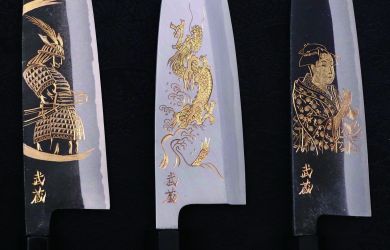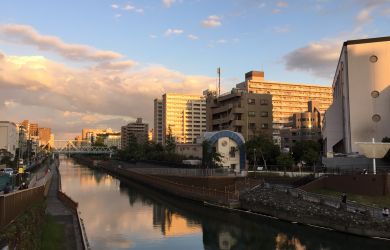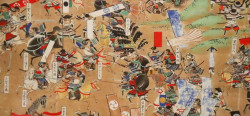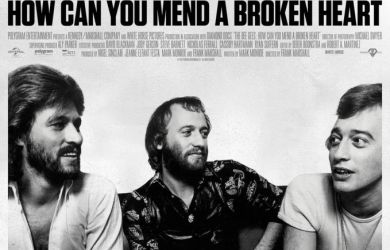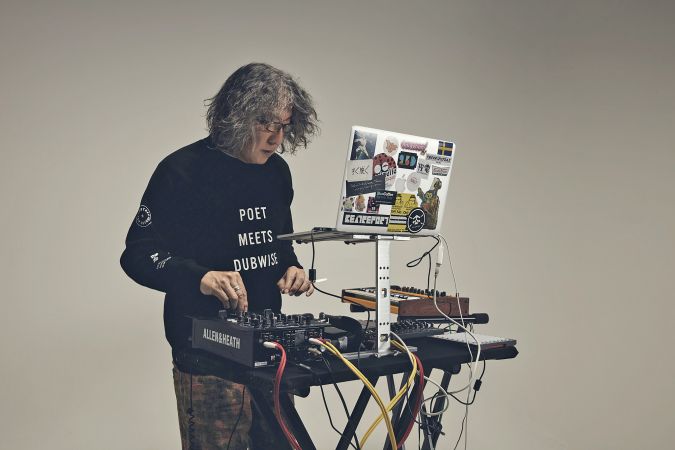
December 26, 2021
Chip Tanaka: Ambitious Sound
Chiptune pioneer on using pilates to surpass Paul McCartney
Even if you don’t know the name Hirokazu Tanaka, chances are you know his music. Better known by video game fans as Chip Tanaka, he’s the guy behind some of the most famous Nintendo soundtracks of the 80s. Creator of tunes featured in nostalgic favorites like “Metroid,” “Super Mario Land,” and “Tetris,” he also produced the “Pokemon” opening theme song in 1997. At its launch, few people expected “Pokemon” to be as popular as it is today, and the original song has now surpassed more than two million CD sales.
Tanaka had built a real name for himself by the end of the 80s, but, never satisfied, he continued to pursue chiptune sounds even after he left Nintendo. After celebrating his 50th birthday in the winter of 2007, he was craving a new project to sink his creative teeth into and decided to give himself a new name: Chip Tanaka. Before the Coronavirus pandemic, he was actively performing DJ sets at some of Tokyo’s renowned venues. Thus, Tanaka is still one of today’s leading legends in the Japanese music scene, releasing his third album Domani this November.
The Italian word domani translates to “tomorrow,” a fitting name given that the album touches on ideas of permanence, impermanence, transience, and dreams. The pandemic allowed the artistic legend to return to the rock albums he used to listen to in his youth, which triggered the 64-year-old artist to aim higher than ever before. Metropolis caught up with the living legend artist on this much-anticipated album.
M: You used to perform regularly at events and shows. How did you spend your time at home after the pandemic?
HT: Every event was an inspiration for me, so I always felt I could improve my set after performing. I already had some ideas for this album at the end of 2019, even though it was soon after I released the previous album. But after the pandemic, I started listening to my favorite albums again such as The Beatles or The Rolling Stones.
M: Do you think that helped you make this album in any way?
HT: I’m just a fan when listening to my favorite music. During the pandemic, I spent a lot of time reading interviews and articles about these artists. There was a lot to learn about them and their professionalism blew me away. These guys are in their seventies already but have been at the top of the music industry for more than half a century. I think that’s amazing. Everything, even small details, are carefully considered. From the color of the ties they wear to how they appear in the media.
What fascinates us is their attitude, not the music itself. Their life is entertainment, and that has always felt more real to me than the music they create. I probably wouldn’t have come to realize this without the pandemic. It’s not easy to take a pause in life when we live in a society that places so much emphasis on productivity and efficiency. Still, it was undoubtedly a positive aspect of the pandemic for me.
I recently started pilates because I think Paul and Mick Jagger must be doing some exercise like pilates [laughs]. I’m just impressed by how they are top artists today and couldn’t help but start doing something for myself, too.
M: When it comes to Tokyo, cyber/electric sounds seem to be what people are likely to associate with the city. For example, British artist Squarepusher’s song Terminal Slam. You were walking in Harajuku in the Netflix documentary series “High Score.” Was there any particular reason for you to walk in Harajuku? What does Tokyo look like to you?
HT: When making music I sit down and focus inside my studio, so taking a walk is not a source of inspiration for me. But I like Tokyo more than Kyoto. I was born in the rural area of Kyoto, which had a lot of traditional wooden houses. Unlike younger people who live in urban areas and aspire for that kind of lifestyle, I had enough of it [laughs].
In my opinion, Tokyo still has a lot of primitive elements everywhere, even though the city is one of the largest cities in the world. For example, the places with the Japanese characters 谷 (valley) like Shibuya (渋谷) and Yotsuya (四谷), used to be inlets or rivers. I was amazed when I found out that Tokyo bay used to have a ria coast.
If you connect all the shrines and temples in Tokyo on the map, you can see the shape of the ria coast from thousands of years ago. I found it very interesting. Cities like Osaka and Kyoto also have long histories but, in Tokyo especially, you can really trace the physical history back more than 10,000 years.
I used to live in Harajuku and it’s been a long time since I visited there. I started revisiting Harajuku recently and realized that I forgot how I used to like the young, energetic atmosphere. I don’t think you can find places like Harajuku in cities in the West. I said I don’t take a walk to write a song but maybe, subconsciously, my walks in Harajuku do affect my songwriting on some level.
M: How would you like your listeners to enjoy your new album, Domani?
HT: I’m grateful whether my fans listen to Domani as an album or as individual tracks. I have a lot of younger fans, and I’m aware that they listen to music on subscription platforms. But I cared about the flow of this album so it’s possible to enjoy it either way. The first half is pop, and the second half is more mellow.
M: How much do you consider your younger audiences when making music?
HT: The other day, a friend of mine told me that his grandson is a fan of the video game “Mother.” I wondered why such a young boy knew about such an old game. It turned out that American game creator Toby Fox, who created the game “Undertale,” is also a fan of the same game and the grandson found out about the game on YouTube.
I thought that was a very modern way to rediscover things, and I felt this whole thing was telling me there’s no time for me to be satisfied with what I’ve achieved so far. I need to keep going. However, I thought it was cool that one game influenced another like music does.
M: What are your current plans for the future?
HT: Ideally, I would like to make a new song every day, like YouTubers post a new video on their YouTube channel. Even if I make a song I don’t really like, that could be someone’s favorite song. Whether it’s a one-minute or five-minute track, you should have it published. It’s not you who decides if it’s a good song, the audience does.
As long as it’s online, one day someone will find you. Making music seems like producing something completely new, but it’s actually putting your favorite music and what influenced you into your style. I believe there’s no such thing as plagiarism.
I’m looking forward to a day where we can gather again to enjoy music from loudspeakers as we did before the pandemic. I hope I can meet my fans and they can dance to this album at actual venues one day. Until then, I will continue making music and will have to do pilates until the day comes.

- GO→JUMP↑
- Pacific
- Third Sunrise
- Wonderful World
- Fennec
- Cactus Chant
- Hourglass
- Rainy Ride
- Moon Drop
- Shadow Dance
- Sandstorm
- Decolor
- Voyage
- 1912

